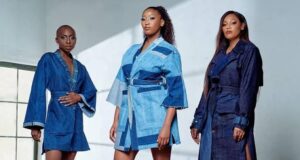Welcome to this post about the African fashion trends dominating 2025, via Afrokonnect. African fashion has been known for it’s rich cultural heritage and intricate craftsmanship. The culture is recently experiencing a significant global resurgence world-wide, it is captivating its audience with a unique blend of tradition and innovation. The global impact of African fashion isn’t overstated as it has overcome boundaries worldwide.
It has successfully challenged conventional fashion norms by infusing a fresh perspective. African fashion is modelled to portray African’s cultural heritage while looking good. Various African influencers have helped the trend by showcasing them on a global stage. The year 2025 is the breakthrough year for African fashion. This comes with a twist as designers are looking to merge these ancient fabrics with modern silhouettes, thus creating a fusion of traditional and modern style.
Sustainability and ethical fashion practices of African fashion will be seen in 2025 and the coming years, this is due to the increasing demand for eco-friendly materials and a transparent supply chain. Implementing these practices will be crucial to a responsible approach to fashion production. This article will explore the captivating African fashion trends in 2025. These ranges from traditional prints to modern and sustainable practices. We will also explore various elements that is shaping African fashion and its growing influence on the global stage.
Importance and Global Impact of African Fashion
African fashion emergence as a powerful force on the global stage is one which is captivating and quick. The uniqueness of the fashion trend was mainly responsible for its speedy growth.
The importance to the fashion trend also cuts across various cultural, economic and social borders. Let’s analyze how the significance and global impact of African fashion:
1) Its ability to preserve the cultural heritage of the African planet:
African fashion is projecting the rich cultural heritage of Africa through its fabrics and intricate patterns. African fashion designers use these fabrics to showcase the cultural diversity of Africa. Each fabric highlights the unique customs that define various African societies.
2) A Catalyst for economic growth and empowerment:
The rise of African designers has brought tremendous progress to the African continent. Various opportunities is opening to Africans on the continent through the rapid growth of African fashion.
3) Promoting Sustainable and Ethical practices:
By supporting various sustainable and ethical practices, African fashion is helping to reduce environmental impacts and empowers artisans. This is aiding in making African fashion a powerful vehicle for positive change.
4) Shaping Global Trends:
African designers and models are making waves on the global sphere. They are challenging the dominance of western fashion and diversifying the fashion sector.
This is aided by the huge number of fashion influencers adopting African-inspired designs. Hence, the richness of African aesthetics is being portrayed in the global light.
5) Promoting Inclusivity and Diversity:
Africa has various ethnic tribes and it displays them with its textiles. African fashion showcases various ethnic backgrounds hence tackling the narrow beauty standards rampant in the industry. This act sends a message of acceptance and celebrates the beauty of diversity on the African continent.
Popular African Fashion Trends Dominating 2025
What are the latest fashion trends in Nigeria?
The year 2024, is portraying African fashion in the limelight of the global fashion industry.
This massive growth in the African fashion industry is due to some African fashion trends which have grown in popularity worldwide. Let’s explore some of the popular trends in African fashion that are dominating the fashion industry in 2025:
1) Sustainable and Ethical Fashion:
There is a growing attraction towards environmental and social issues worldwide. This has led to a rise in sustainable and ethical practices in the fashion industry.
Read Also:
African fashion brands are taking this momentum and utilizing it. They have started producing textiles which are eco-friendly and make use of transparent supply chain. Note: African designers are prioritizing sustainability but are not compromising the quality or style.
2) Afrocentric Prints and Fabrics:
African fabrics have always been the special element that distinguishes African fashion from their counterparts. The year 2024 hasn’t hindered or restrict African fabrics but they continue to hold a prominent place. Ankara and Kente are examples of African fabrics that continue to stand out globally. The fusion of African heritage with western and modern designs creates a captivating aesthetic that portrays African cultural heritage.
3) Elevated Traditional Silhouettes:
Traditional African silhouettes are being renovated to suite modern tastes. These traditional elements such ass flowing robes, kaftans and dashikis are now being modernized to suite the newer generations and the western world. Note: This fusion of the old and new helps to retain our culture and still look fashionable.
What type of clothes are trending now?
4) Afro-Futurism:
Afro-Futurism is a combination of African culture, science fiction, and futurism that creates a unique aesthetic. Various African designers are incorporating metallic accents, futuristic prints and innovative materials to create garments that depict the spirit of Afro-futurism.
5) Monochromatic Palettes:
Monochromatic Palettes is one of the basic elements of African Fashion. African textiles are associated with bold and vibrant colors and they are making a bold statement in 2025. Hence, African designers are experimenting with several colors like blank and gray to create a sophisticated look. This trend shows the versatility of the African culture. It also shows that the African culture can embrace elegance.
6) Statement Sleeves:
Sleeves such as puff and dramatic bell are taking over African fashion this year. African designers are adding statement sleeves to their designs. This will enable them add volume and a touch of femininity to their designs. These sleeves have a way of elevating simple outfits and adding a stylish element to garments.
7) Accessorizing with Headwraps:
Headwraps commonly known as “gele” is a popular accessory in African fashion. African designers are embracing oversized and intricately wrapped headscarves with various colors. Headwraps is a sign of cultural pride and empowerment.
FAQ
What fashion trends are from Africa?
Africa is a diverse continent with a rich cultural heritage, and its fashion trends are equally diverse and vibrant. Over the years, African fashion has gained significant global recognition, and many elements from African cultures have been incorporated into mainstream fashion. Some of the prominent African fashion trends include:
1. Ankara Prints: Ankara, also known as African wax prints or Dutch wax prints, is a colorful and bold fabric with intricate patterns. It is widely used in clothing, accessories, and even home decor. The use of Ankara prints has become popular worldwide, reflecting the continent’s vibrant and expressive culture.
2. Kente Cloth: Originating from Ghana, Kente cloth is a handwoven fabric made of brightly colored strips of cloth.
It is often used to create traditional garments, such as dresses, skirts, and ceremonial attire. Kente patterns and designs have inspired numerous fashion collections globally.
African Fashion Trends & Styles Dominating 2025
3. Dashiki: Dashiki is a loose-fitting, brightly colored tunic that originated in West Africa. It has been embraced by many fashion designers and is now a popular style for both men and women worldwide.
4. Aso Ebi: Aso Ebi is a Yoruba term from Nigeria that translates to “family cloth.”
It involves wearing coordinated, often matching, outfits at social events like weddings, funerals, and celebrations. The Aso Ebi culture has become a significant aspect of Nigerian fashion and is now seen in various African diaspora communities.
5. Maasai Beading: The Maasai people of East Africa are known for their intricate beadwork, which is often incorporated into clothing and accessories.
Maasai-inspired beadwork has found its way into modern fashion, adding a touch of ethnic and cultural flair to various designs.
6. African Tribal Prints: Many designers draw inspiration from traditional African tribal patterns, incorporating them into modern clothing and accessories. These prints are characterized by geometric shapes, bold colors, and striking motifs.
7. Agbada: Agbada is a flowing, oversized robe worn by men in Nigeria and other West African countries. It has a regal appearance and is often seen at special occasions and ceremonies.
8. Kitenge/Chitenge: Kitenge or Chitenge is a colorful, printed fabric commonly worn in East and Central Africa. It is used to create a variety of clothing, from dresses and skirts to shirts and headwraps. These are just a few examples of the diverse and inspiring fashion trends that originate from Africa. African fashion continues to evolve and influence the global fashion scene, celebrating the continent’s rich heritage and creativity.
RECOMMENDED;
- Papaya Ex Biography, Net worth, Career and Relationship
Conclusion

2025 has pushed African fashion into the limelight with their vibrant colors and bold prints. The fusion of traditional and modern elements has helped in pushing Africa on a global stage. The inclusion of sustainability and ethical practices has also helped in showcasing Africa’s fashion industry as committed to social and environmental responsibility. The rapid growth of African fashion has helped the continent to gain global recognition. It has helped in celebrating our cultural heritage which promotes inclusivity. Hence, setting the stage for an exciting and innovative future in the world of African fashion. Thanks for reading and I hope to see you another time on Afrokonnect.















